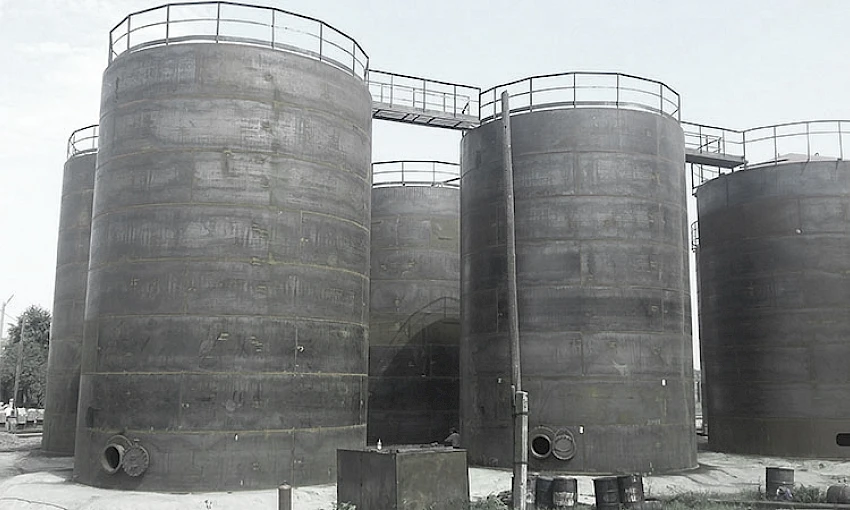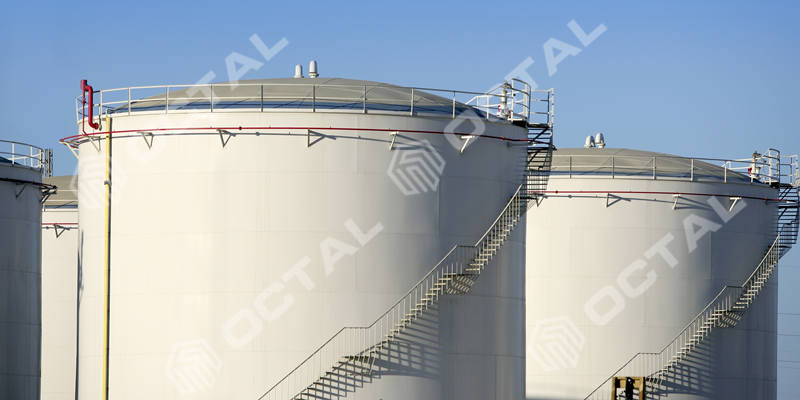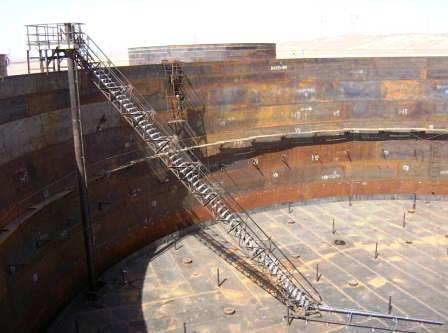The Advantages of Welding Assessment for Enhanced Security and Efficiency
Welding assessments are crucial for guaranteeing that frameworks satisfy rigorous sector criteria. They play an important role in identifying flaws early, therefore enhancing safety and reducing the threat of tragic failings. Additionally, these evaluations can lead to significant cost savings by protecting against pricey repair services and downtime. As organizations aim for better performance and reliability, the relevance of a durable evaluation procedure can not be overemphasized. What other benefits might arise from a commitment to comprehensive welding inspections?
Making Certain Conformity With Market Criteria
Assuring conformity with market standards is necessary for keeping top quality and security in welding projects. Following well established procedures not just shields workers yet likewise boosts the longevity and efficiency of the end product. Welding evaluations performed at various stages of the procedure help determine any kind of discrepancies from these criteria, enabling timely rehabilitative actions. This positive method alleviates the threat of failures that might arise from subpar craftsmanship.
Conformity with sector standards fosters count on among stakeholders, consisting of customers, governing bodies, and the labor force. It signifies a commitment to excellence and responsible methods, which can cause boosted organization possibilities and an affordable edge on the market - API 650 Welding Inspection. Routine assessments likewise assure that products and strategies made use of straighten with the most recent technical advancements and safety regulations. Ultimately, adherence to sector criteria is not just a governing demand however a cornerstone of quality control in welding tasks
Enhancing Safety And Security Via Very Early Discovery of Flaws
While the main goal of welding examinations usually focuses on compliance, they play a vital role in enhancing safety and security by allowing the early detection of issues. Recognizing problems such as incomplete blend, splits, or porosity during inspections can greatly minimize the danger of devastating failings. Early discovery enables timely treatments, making sure that defective welds do not compromise architectural integrity.
In addition, organized assessments promote a society of safety and security within organizations by emphasizing the relevance of quality assurance. This positive approach not only shields workers but additionally safeguards the surrounding setting. Routine examinations can disclose patterns in issue occurrence, enabling for adjustments in welding methods and training programs to resolve underlying problems.
Welding evaluations serve as an essential safeguard, boosting general safety and efficiency by determining issues before they escalate into severe threats. This dedication to quality directly contributes to the durability and dependability of bonded frameworks.
Reducing Costs by Avoiding Failures
By executing complete welding examinations, companies can effectively reduce costs associated with failures and rework. The proactive identification of defects during the welding process minimizes the risk of devastating failures that can lead to costly repair work or replacements. Early detection enables timely interventions, which avoids the escalation of minor problems into major issues that stress budget plans and resources. Additionally, by ensuring that welds fulfill defined standards, companies can stay clear of hold-ups in task timelines created by the need for comprehensive rework or extra inspections later at the same time. This not just conserves cash however also enhances wikipedia reference operational effectiveness. A credibility for top quality craftsmanship can lead to enhanced customer satisfaction and repeat business, more contributing to financial security. In general, investing in welding examinations is a calculated method that cultivates expense financial savings while securing the integrity of bonded structures.
Improving Efficiency and Longevity of Frameworks


Welding examinations play a vital duty in boosting the efficiency and longevity of frameworks, as they validate that welds are carried out to the highest requirements. By recognizing flaws early in the welding process, evaluations prevent weaknesses that might endanger structural stability. This positive strategy guarantees that the products made use of fulfill required requirements, therefore maximizing their load-bearing ability and durability.
Regular tracking of welding techniques adds to the total top quality of construction projects. The capacity for exhaustion and failure over time is significantly reduced when welds are validated for conformity with sector criteria. Structures that are built with appropriately checked welds are likely to experience fewer maintenance concerns and enhanced longevity.
Eventually, strenuous welding examinations not just boost the instant efficiency of a structure yet likewise extend its functional life expectancy, offering long-term value to both contractors and end-users alike.
Fostering a Culture of Quality and Integrity
A dedication to high quality and reliability in welding practices considerably contributes to the general success of building and construction projects. When companies prioritize these worths, they foster a culture that motivates careful attention to detail and adherence to market criteria. This culture not only enhances the ability level of welders but additionally promotes accountability and team effort amongst all stakeholders associated with the task.

Routine welding examinations work as a foundation in this social change, enhancing the importance of constant performance and safety review actions (API 650 Welding Inspection). By implementing rigorous evaluation methods, companies can recognize possible flaws early, mitigating risks and staying clear of costly rework. An emphasis on top quality and reliability infuses confidence amongst customers and partners, leading to more powerful connections and enhanced reputations.
Partnerships Inevitably, promoting a culture of high quality and integrity in welding techniques not only elevates project end results yet additionally ensures lasting sustainability and success in the building and construction industry.
Frequently Asked Inquiries
What Certifications Should a Welding Inspector Have?
A welding inspector must possess relevant qualifications, such as AWS CWI or CSWIP. Additionally, they must have experience in metallurgy, welding procedures, and evaluation try here techniques, along with solid logical skills and focus to detail for efficient evaluations.

How Usually Should Welding Inspections Be Conducted?
Welding examinations need to be conducted routinely, ideally after each significant stage of the welding procedure. Additionally, periodic inspections need to happen based on job demands, solution problems, and governing standards to assure ongoing high quality and safety.
What Equipment Are Made Use Of During Welding Inspections?
Welding examinations use different tools, consisting of ultrasonic testers, magnetic bit testers, visual examination devices, and radiographic devices. Each tool serves a particular objective, ensuring weld high quality and structural integrity through extensive evaluation and analysis.
Can Welding Inspections Be Done From Another Location?
Welding evaluations can undoubtedly be executed from another location making use of innovative innovations such as drones and specialized cameras. These devices allow inspectors to evaluate welding high quality and honesty from a range, enhancing effectiveness and safety in different environments.
What Are the Typical Kinds of Welding Flaws?
Usual types of welding issues consist of porosity, splits, insufficient combination, damaging, and slag addition. These issues can jeopardize the honesty and strength of welds, bring about potential failures in structural applications otherwise attended to appropriately.
Welding assessments are essential for making sure that frameworks fulfill rigid industry criteria. Welding assessments carried out at different phases of the process aid identify any kind of deviations from these criteria, enabling timely restorative actions. Welding inspections play an important role in enhancing the efficiency and durability of frameworks, as they validate that welds are carried out to the greatest criteria. Welding assessments must be conducted on a regular basis, preferably after each significant stage of the welding procedure. API 650 Welding Inspection. Welding examinations make use of various devices, including ultrasonic testers, magnetic bit testers, aesthetic inspection tools, and radiographic devices